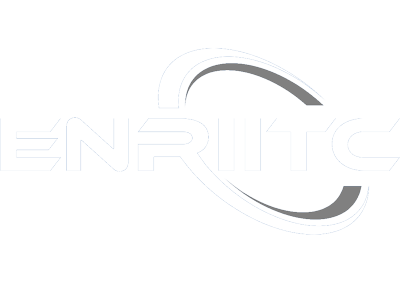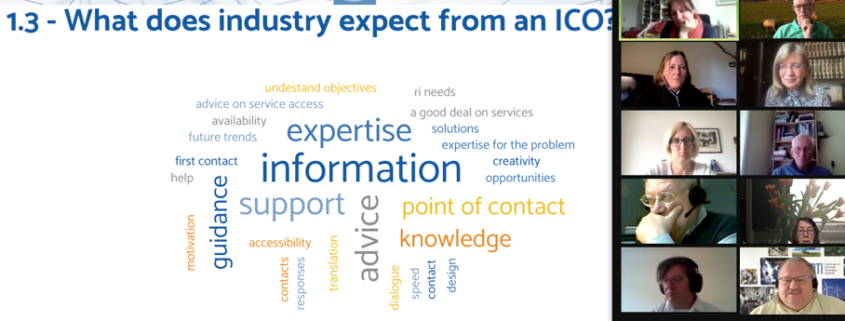ENRIITC Focus Group #4 “The role of the ICO (Industry Contact Officer) in Industry access to Research Infrastructures”
- What is the role of an ICO in industry access to RIs?
- What are the main objectives of ICOs in the execution of their tasks?
- What does industry expect from an ICO and when this role can be considered as highly successful?
These are just a few of the topics which have been discussed during the ENRIITC Focus Group #4, on the 11th May 2021, and the follow-up meeting, on the 18th of May The purpose was to provide input towards the “RI Innovation – Partnering Readiness Strategic Action Plan”, by surveying practical examples from experienced practitioners, which could inform the project about tested outreach strategies towards industry.
One of the main points emerged during the meeting is that industry expects to be competently and efficiently led through the RI ecosystem, in order to timely find the required information or expertise. In fact, the engagement with an Industry Contact Officer (ICO) should adequately serve this crucial role of navigating the complex RI environment.
The precise collocation of the ICO within the organisational structure of a Research Infrastructure and the role’s daily tasks may vary across the different RIs. While the ICO is described as related to either the business development units or the technology transfer offices – or both, it emerges quite clearly that the ICO role appears to never mingle with procurement office matters. ENRIITC should contribute to an updated definition of ICO, closer to the notion, revealed in this and other ENRIITC experiences, which all the interviewed practitioners have experienced through their careers.
TRAINING PROGRAMME AND FINANCIAL TOOLS: HOW CAN AN ICO BE SUPPORTED, NOT ONLY FROM WHAT CONCERNS SKILLS DEVELOPMENT, BUT ALSO IN TERMS OF PROFESSIONAL INTERACTIONS?
This is another important feature because the identification of financial tools, which could support the development of the ICO skills, based on a common ground of activities, would lead to intensified actions as well as exchanges of practices and information among ICOs, as well as with the ILOs. Examples of activities which could be beneficial in this respect include exchange visits between ICOs and the creation of shared resources and practices.
CHALLENGE FOR AN ICO ABOUT FUNDING COLLABORATIVE RESEARCH PROJECTS BETWEEN RIs AND INDUSTRY
All the participants agreed that a programme of scaled incentives – like feasibility study, commercialisation grant or innovation vouchers – could be extremely beneficial in order to empower this collaboration, such as Enterprise Ireland “Innovation Vouchers” scheme or the Swedish scheme ‘Vinnova’, which are cases of effective funding programmes, at the national level.
Clearly, this could also be mimicked through a European project, such as TamaTA in the CalipsoPlus project (it allows SMEs to go beyond the simple feasibility access foreseen in the industry networking activity) or LEAPS Innov (which focuses on the implementation of new strategies and activities for long-term partnerships between industry and the European light sources).
BUT WHICH ARE THE RELEVANT SKILLS FOR THE ICO ROLE?
They actually seem to be highly related to interpersonal capabilities, connected to a good understanding of the industry operational needs. To experience and learn about industry-RI engagement practices, exchange visits and/or a short professional “life-long” learning summer school, with the organised support of experienced practitioners, could be valuable initiatives for ICOs.
On any account, the need to incentivise the relations between ICOs and ILOs is strongly felt. The realisation of an action plan, supported by economic resources, targeted to specific activities (such as funding for meetings or common training programmes), could generate an alignment of organisational strategies of both the ILO and ICO employers. These synergistic activities would very likely strengthen European innovation potential, with a positive impact on the use of RIs and national return on RI investment.
Participants: Ilaria Nardello (SZN), Ed Mitchell (ESRF), Jorge Lopez Reig (CDTI), Wahid Rofagha (PRACE), Katharina Lauer (ELIXIR), Adrianna Ianora (SZN), Vito Vitale (CNR), Claudia Pfander (EMBL), Nigel Wagstaff (EATRIS), Shridhar Jawak (SIOS), Antonio Bonucci (XFEL), Laura MacDonald (ASTP), Andreas Witt (CLARIN ERIC), Gerard Cornet (NOW), Franciska M.G. de Jong (CLARIN ERIC).






Leave a Reply
Want to join the discussion?Feel free to contribute!